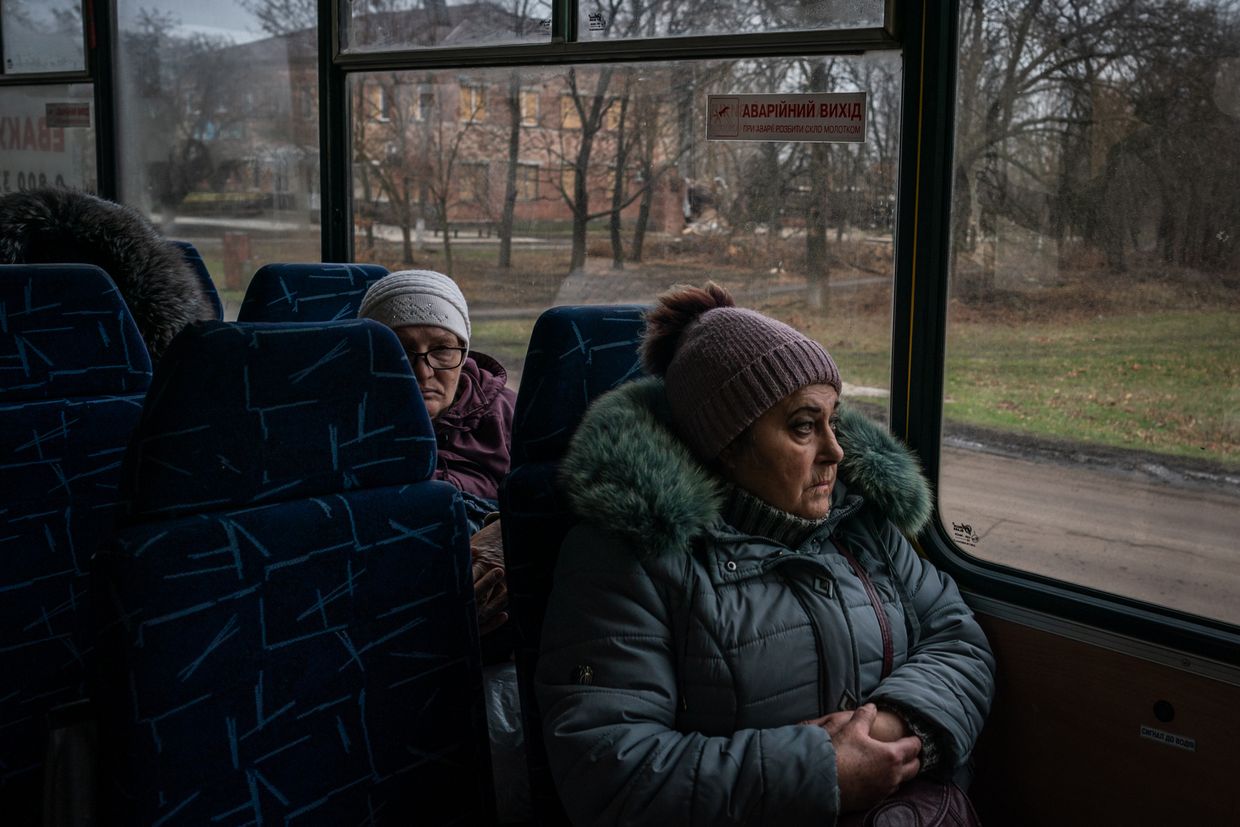DRUZHKIVKA, Donetsk Oblast — A loud explosion goes off, followed by a second. People begin to run in different directions. Despite the chaos, taxi driver Serhiy Pohrebnyakov sits calmly behind the wheel, waiting for customers.
Pohrebnyakov’s wife and daughter fled Druzhkivka after the start of the full-scale invasion, leaving him alone in the town. Amid near-daily Russian attacks, Pohrebnyakov goes out on his route every day to make money to help his family, he says.
“I work to earn money for my family, who are now in Germany,” he says. “They don't send me money here, I send money to them. I also look after our home here because who knows what will happen next.”
“When my daughter calls me and says, ‘Dad, I love you,’ it gives me the strength to get up in the morning and drive,” he tells the Kyiv Independent.
Druzhkivka is located a mere 15 kilometers (9 miles) from one of the hottest spots on the front line, the embattled town of Chasiv Yar. As Russia advances in the east, it has come under increased shelling and aerial attacks by Russian forces, the head of the Druzhkivka military administration says.
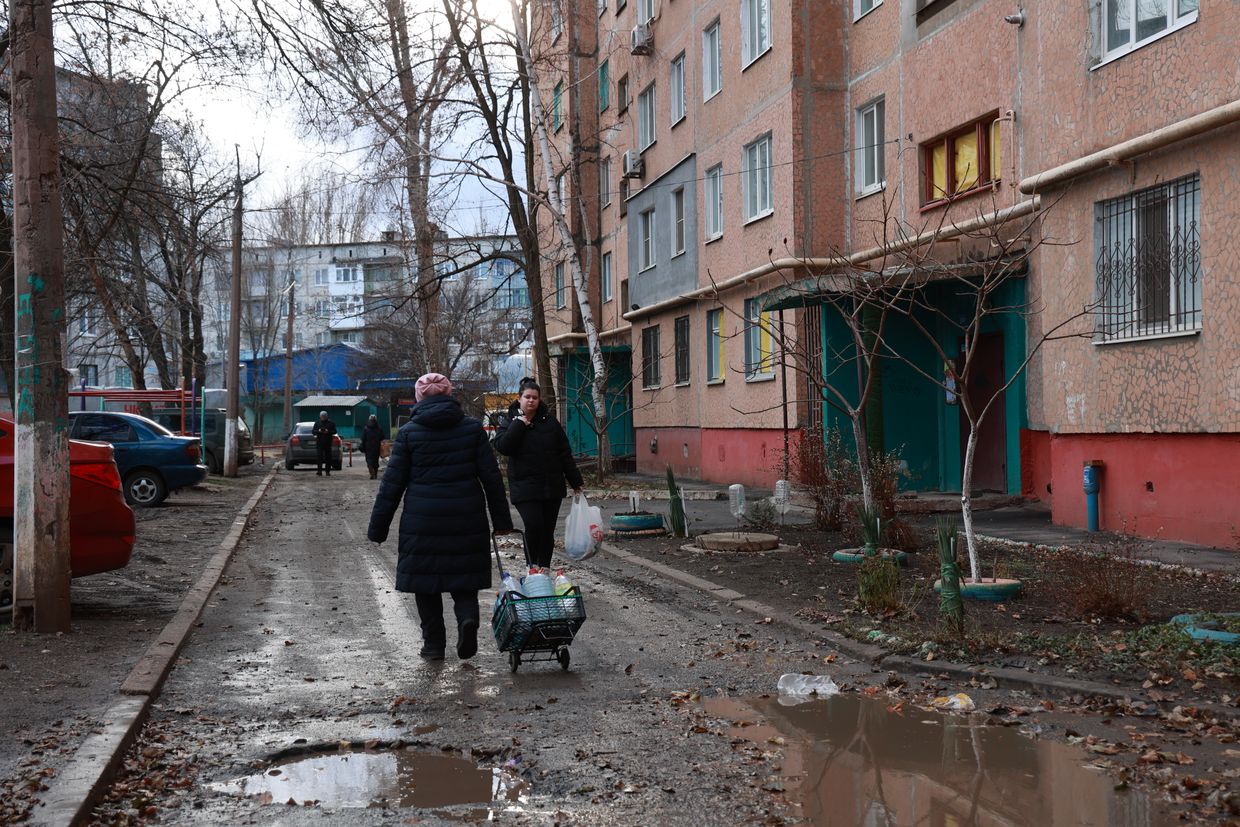
This is not the first time Druzhkivka has been threatened by a Russian invasion. It was occupied once before in 2014 when Russian-backed proxies took control of the town for nearly four months before being liberated by Ukraine.
As Russia pushes westward toward the town, an uptick in attacks is damaging homes, businesses, and administrative buildings, much of which was rebuilt and developed over the past decade.
Around 36,000 people — half of Druzhkivka’s wartime population — have remained in the town. It has also become the new home of around 14,000 internally displaced people, and a hub for soldiers in the rear of the front lines.
Those who have stayed, running businesses and organizations, keeping shops open and community centers alive, are vital to maintaining a semblance of normal life amid the devastation, as well as providing goods and services for soldiers in the area.
‘We are where we are needed’
Halyna Khomchenko watches children run around on a colorful playground from the second floor of a school in Druzhkivka.
She is an entrepreneur and community activist who decided to stay in Druzhkivka to continue helping the locals. “We are where we are needed,” she tells the Kyiv Independent.
Khomchenko opened the Child Development and Assistance Center in 2023 after the outbreak of the full-scale war. The center has around 50 students from pre-school-aged children to fourth graders.
Despite its proximity to the front line and frequent Russian shelling, the center has all the qualities of a normal school life: textbooks are laid out on the desks, math and history lessons are in progress, and kids play during recess.
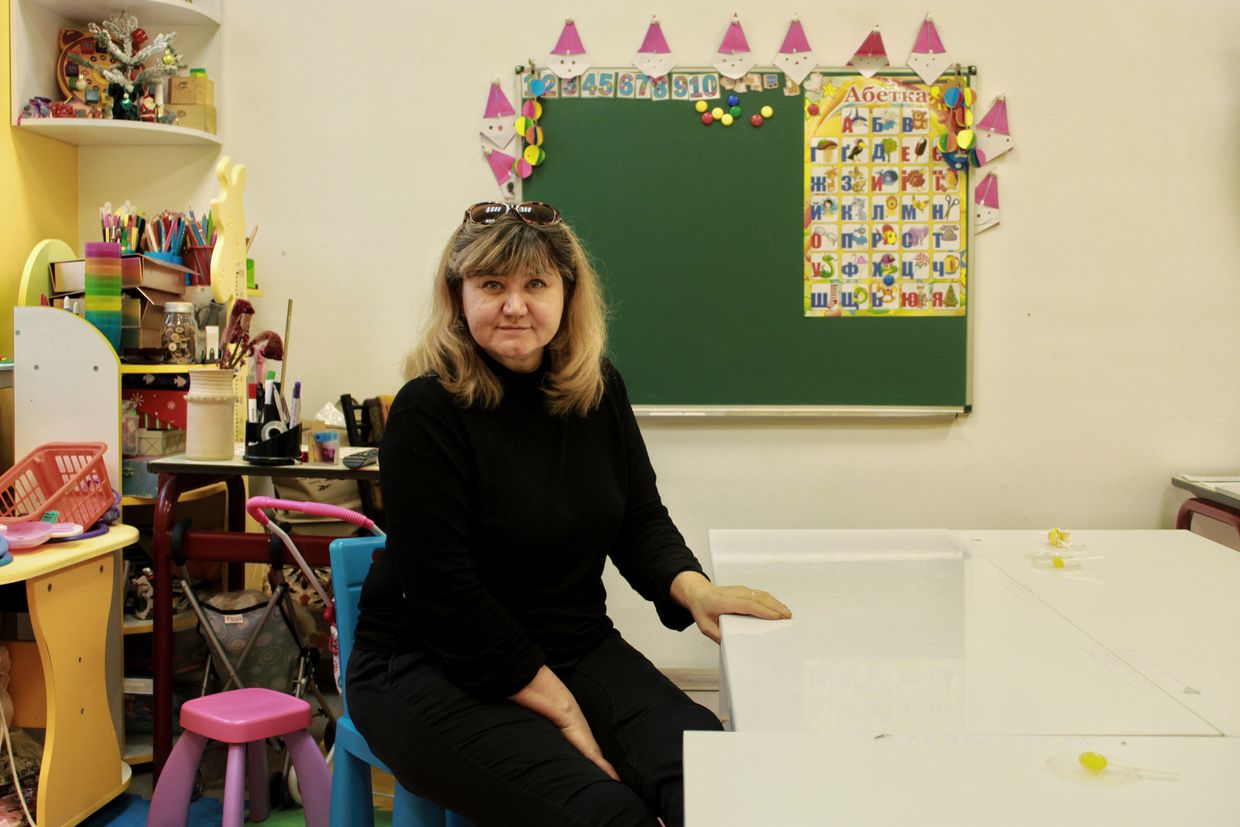
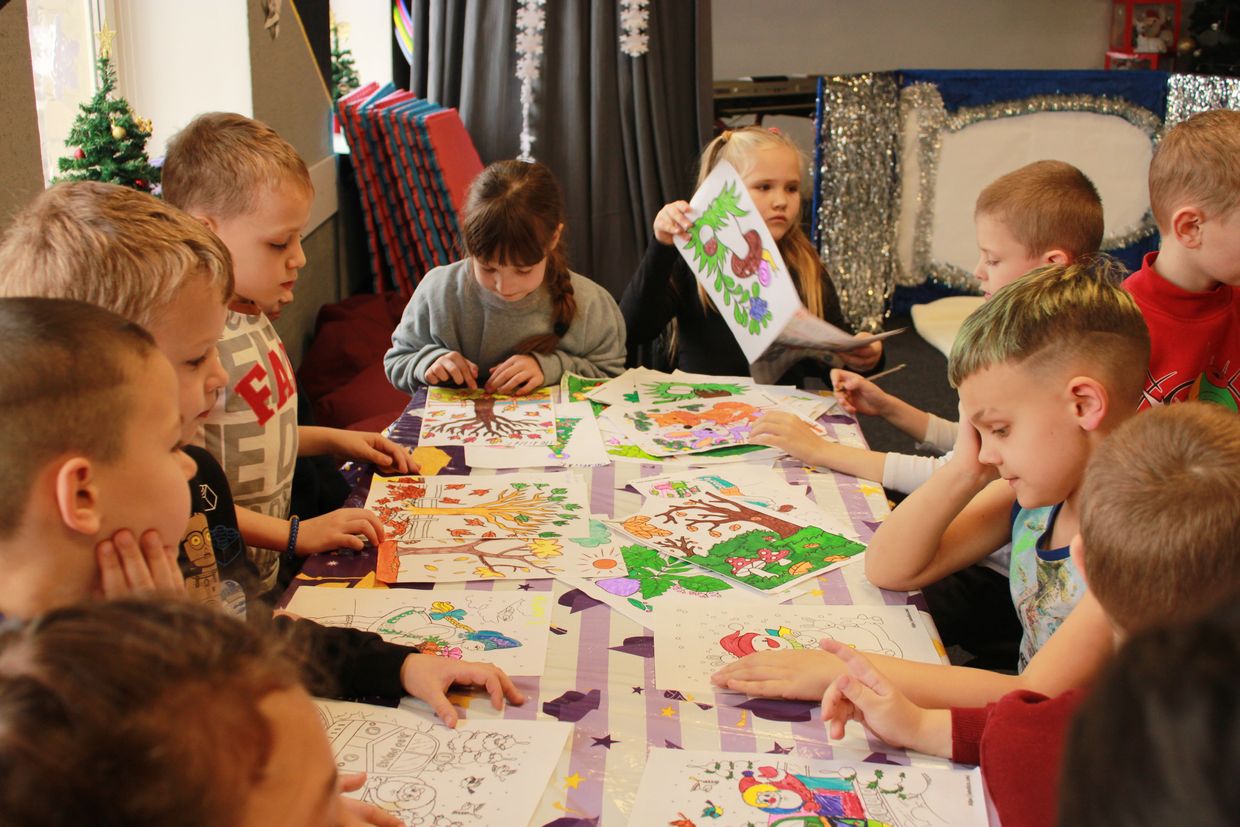
The outbreak of the full-scale invasion in February 2022 forced all schools in Druzhkivka to switch to online learning. Since then, Khomchenko’s center has been the only place where students can study in person.
“We saw that after what they had experienced, children not only need knowledge but also emotional support. The center has become a place where they feel safe, learn, and recover from their traumas,” says Khomchenko.
"We saw that after what they had experienced, children not only need knowledge but also emotional support."
Before the full-scale invasion, she ran a rehabilitation center for families who had adopted children in the neighboring village of Shchurove. Russian troops destroyed the rehab center when they occupied the village in May 2022.
“That wasn’t the only place of my strength that was destroyed by the Russians,” says Khomchenko.
When Druzhkivka came under heavy attacks in early 2022, Russia hit Khomchenko's family's bakery, Khoma Khlib — or Thomas Bread, in English. At the time, bread had already largely disappeared from the town’s shelves due to shortages at the start of the invasion.
It took Khomchenko several weeks to reopen their bakery in a new location. “We worked around the clock so that people didn’t have to worry about the lack of bread, so that the panic would disappear,” Khomchenko recalls. Her bakery sold bread at a symbolic price of Hr 10 ($0.24) or distributed it free of charge to those who could not pay.
Food is now readily available in the town, and shelves are stocked with bread, including Khomchenko’s, as Druzhkivka adjusts to its wartime reality. Reliable access to water is another story, however, as Russian shelling regularly leaves the town’s residents without water for several days, or even sometimes weeks.
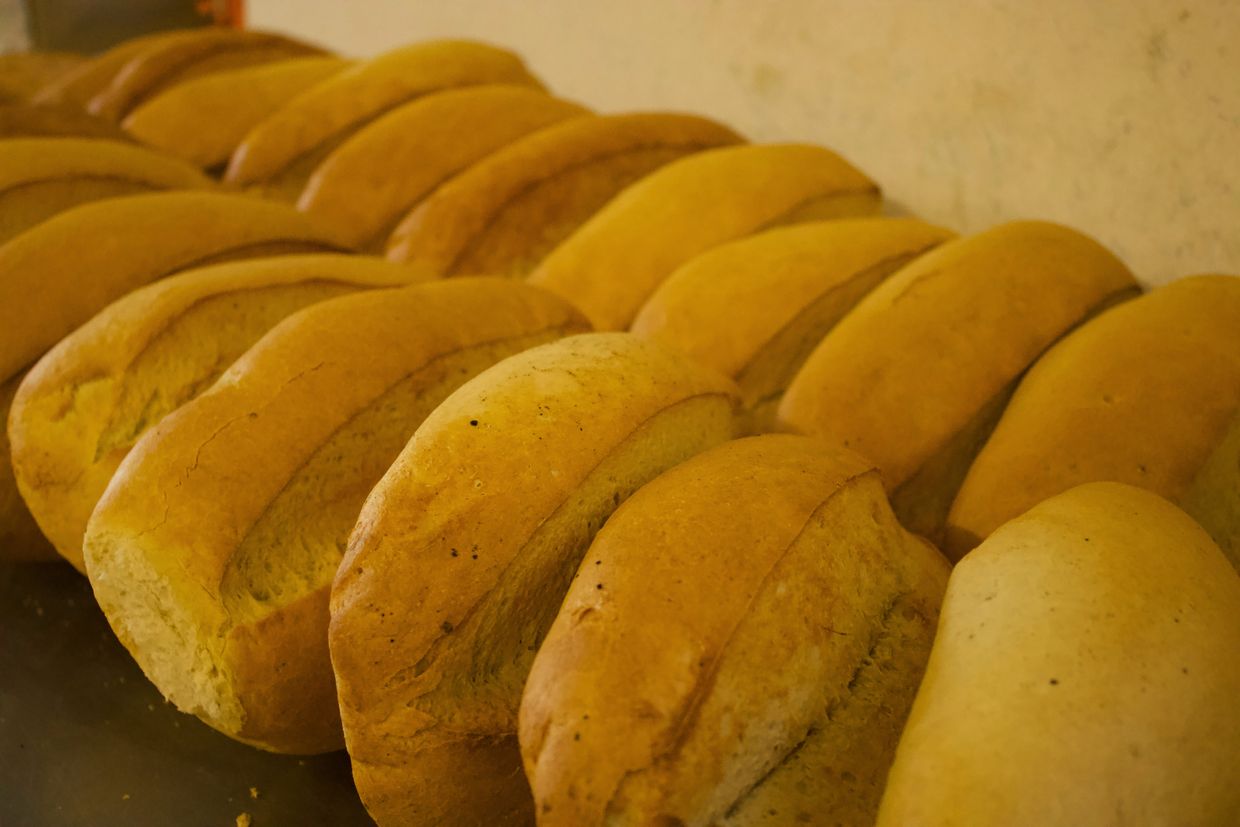
‘We work for the military’
Halina Radchenko says she’s used to the near-daily Russian attacks at this point. The small shop where she works stands out among the grey and ruined buildings around it.
“At 5 a.m., everything is on fire, shining, illuminated,” Radchenko says, laughing. Her small shop, located in Oleksiyevo-Druzhkivka, a village close to Druzhkivka, is always busy.
“It’s mostly our boys here. We work for them. We see them off to their positions and meet them when they come back,” she says.
Radchenko calls her shop a "lost and found." She keeps lost phones and even a single lost mitten. Under the counter, she has a small handmade toy cat that someone left behind.
“It was the guys coming from their positions. It was dark, someone lost it. I want the owner to be found. I hope to God that he is alive,” Radchenko says. She has been looking for the toy’s owner for several months now, but says no one has heard anything about the soldier whom it belongs to, who goes by the call sign “Docent.”
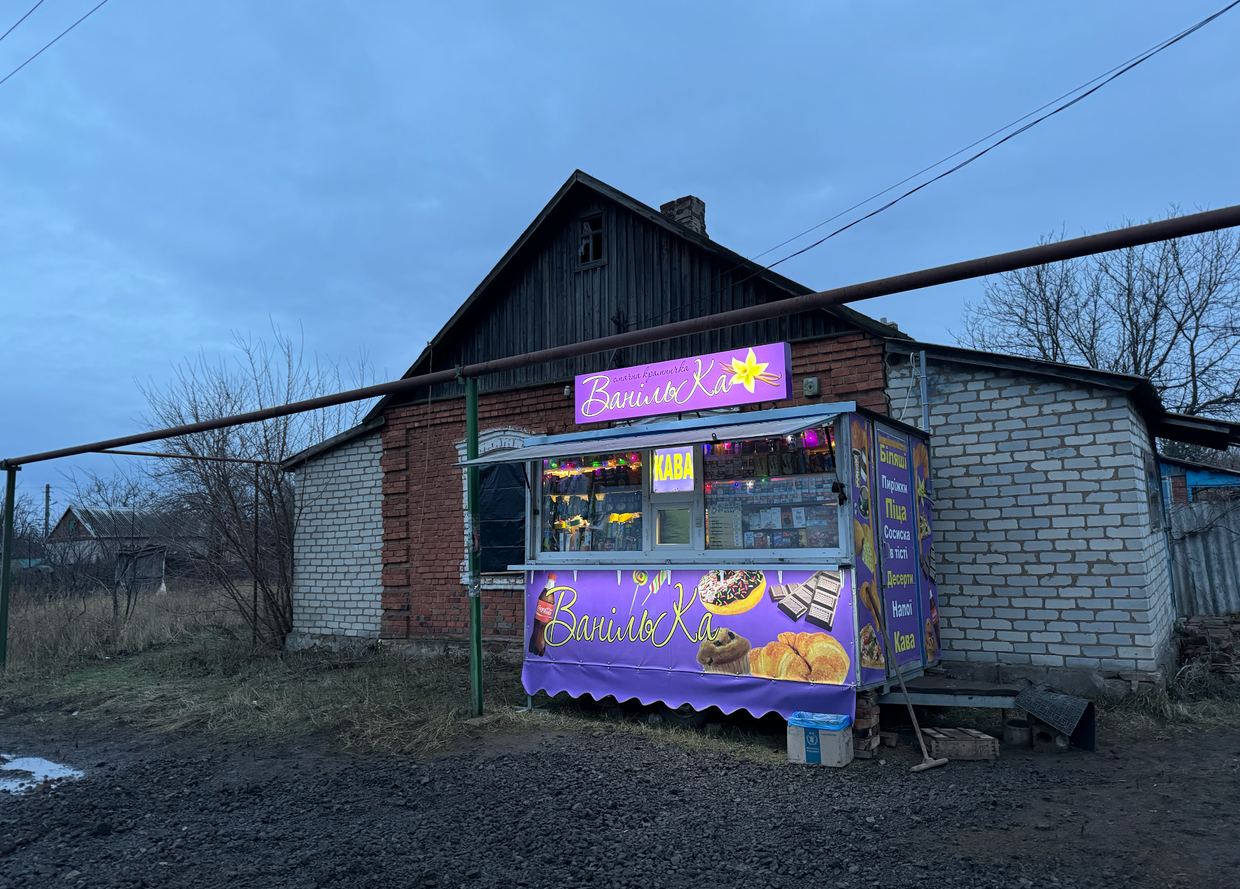
The shop has become a place where soldiers shop before and after their missions. It sells hot dogs, coffee, socks, razor blades, cigarettes, deodorants — everything soldiers might need while on the front. “We already know who likes what. We don't even need to ask them,” adds Radchenko.
Russia’s attacks are gradually destroying the area’s businesses and centers of community life. The historic Druzhkivka factory that produced some of the country’s most beloved sweets, including halva, was destroyed in a Russian attack in October 2024. The Altair Ice Arena — Ukraine’s largest hockey and figure skating rink — was struck in a missile attack in January 2023.
And an orphanage and boarding school in Druzhkivka that served over 200 children with disabilities before the full-scale invasion was destroyed in March 2023.
Despite being so close to the frontline, the local authorities are developing a plan to restore the town, even as the war continues. They are confident that Druzhkivka will have peace, development, and a future as part of Ukraine.
“We understand that we are on the right track, in the right place, at the right time,” Khomchenko says.
